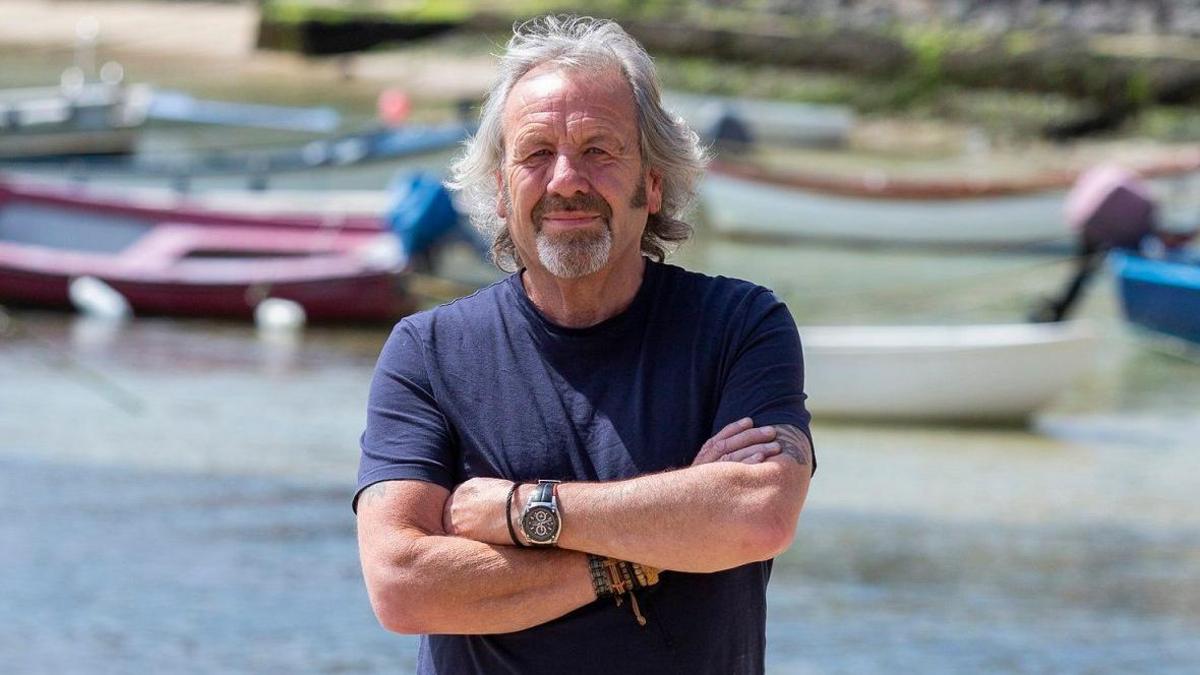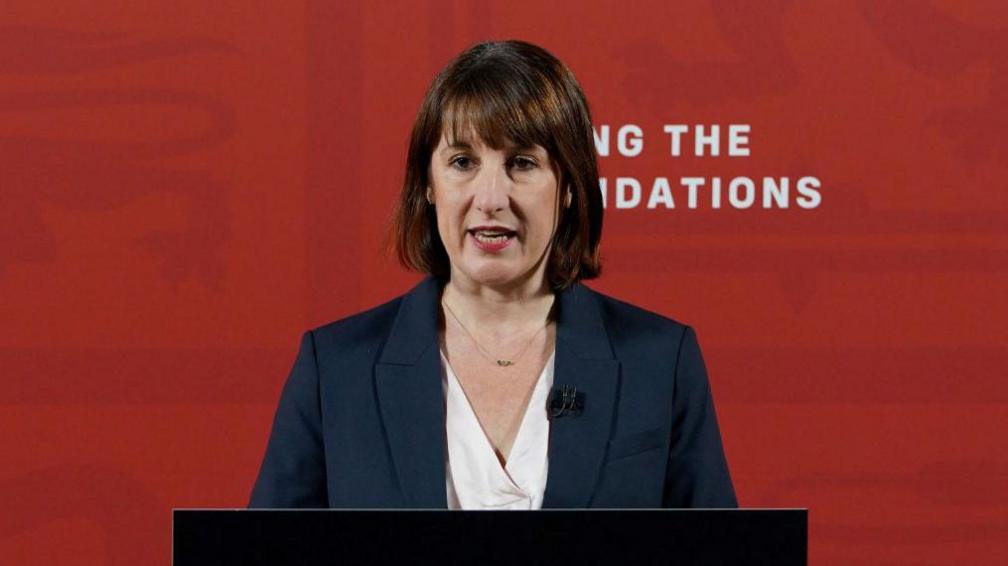'I'll miss winter fuel payments by £2 a week'

Rob Trewhella is "annoyed and angry" to miss out on the payment
- Published
Plans to scrap winter fuel payments to most pensioners have been met with dismay by some of those who will lose out.
About 10 million older people will no longer qualify for the benefit, which is worth between £100 and £300, because they are deemed too wealthy.
The new Labour government says it is right to target those most in need, given the "dire" public finances it has inherited.
Rob Trewhella, 67, says his weekly pension is £2 a week too high to be able to claim pension credit.
This means he will no longer receive fuel payments, making him feel "annoyed and angry".
"It's very sad when you get to this sort of age, when you've paid tax and National Insurance for 50 years, and you still have to scrimp and save - it doesn't seem right," he says. "I do not believe any words that come out of a politician's mouth any more."

New Chancellor Rachel Reeves said she had to make "urgent decisions" about the country's finances
Life is already a struggle. Before the state pension increase in April, Rob says he was left with only £15 a month to live on once his rent, council tax and bills had been paid.
"Last year, I put the heating on one day and it was going to cost me £20 a day because all I've got is an electric fire and space heaters and they aren't very efficient.
"How do people like me survive? I put an extra layer on, I don't turn the lights on, I make do with a kettle when I need to wash up. I'm cutting back on so much now."
Rob recently took a job as a taxi driver after realising his pension did not cover the cost of renting alone following a relationship breakdown.
He did not expect to have to work in his late 60s, and health problems, including diabetes and high blood pressure, mean he fears he may fail a medical exam and lose his livelihood.
"Overtime hours knock me sideways and I'm exhausted. If I do weekend work I might not get home until 2:30 in the morning. It does the bank balance good, but I miss a lot of hours in the day as I'm just so tired," he says.
'It's like it's been ripped from my purse'

Laura says she could not sleep after hearing she would no longer get the payment
Laura Marcus, 68, lives with her husband John, 73, who has Parkinson's disease.
She could not sleep after hearing about the changes to fuel payments, which she described as "a terrible blow".
"I've been doing my budgeting from now until the end of the year, as [like] a lot of people on very low incomes, we have to juggle every single penny. I assumed this money would be coming in, it's like having it ripped out of your purse," she says.
The couple both worked for 50 years, but for much of that time they were self-employed, so now live on a relatively small pension, plus an attendance allowance because of John's condition.
They live in Leek in the Peak District, which Laura says can be particularly wet and cold, but cannot turn down the heating because of her husband's illness.
"I just don't know what to do. I've been cancelling everything I can think of, every subscription, charity, payment, but I can't make up the shortfall," she says. "The only thing I can cut now is food. We will have to have beans on toast two or three times a week instead of a proper meal."
Morgan Vine, head of policy at Independent Age, says the charity is particularly concerned about pensioners who will narrowly miss out on the payment.
“The chancellor’s announcement to end the winter fuel payment for those not receiving pension credit risks driving hundreds of thousands of older people into further financial hardship," she says.
"That’s hundreds of thousands more older people having to skip meals and not use their heating, living with extreme anxiety about how they will make ends meet."
The winter fuel allowance was previously available to all pensioners.
But the new Labour government has announced that from this winter, only those who receive pension credit or other means-tested benefits will be eligible.
To be in line for the the payment, pensioners in England and Wales need to have an income of less than £218.15 a week, or £332.95 as a joint weekly income. Their savings are also taken into account.
Disabled people, carers and those with housing costs could be eligible despite these factors, and it is estimated that pension credit is not received by more than a third of those who should get it.
The governments in Scotland and Northern Ireland have not yet decided whether to make the benefit means-tested.
Some pensioners have told the BBC they think they should no longer receive the benefit as they do not need it.
“We said we would be honest with the public and, given the dire state of the public finances we have inherited, this government must take difficult decisions to fix the foundations of the economy," a government spokesperson said.
“In these circumstances it is right that winter fuel payments are targeted at those in most need, and we will work with local authorities to boost the uptake of pension credit, reaching the many pensioners who could still benefit from this year’s winter fuel payments.”